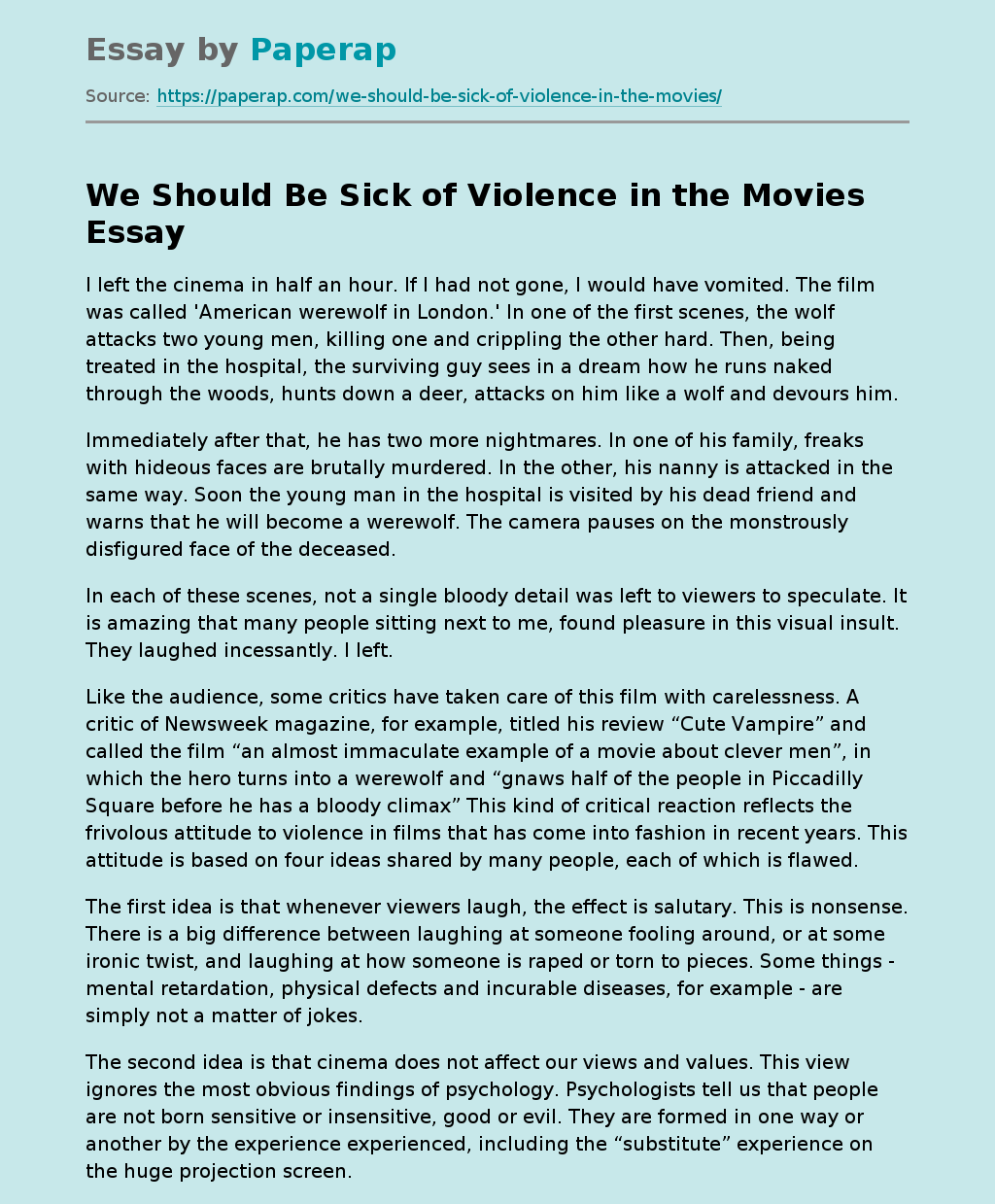I left the cinema in half an hour. If I had not gone, I would have vomited. The film was called ‘American werewolf in London.’ In one of the first scenes, the wolf attacks two young men, killing one and crippling the other hard. Then, being treated in the hospital, the surviving guy sees in a dream how he runs naked through the woods, hunts down a deer, attacks on him like a wolf and devours him.
Immediately after that, he has two more nightmares.
In one of his family, freaks with hideous faces are brutally murdered. In the other, his nanny is attacked in the same way. Soon the young man in the hospital is visited by his dead friend and warns that he will become a werewolf. The camera pauses on the monstrously disfigured face of the deceased.
In each of these scenes, not a single bloody detail was left to viewers to speculate. It is amazing that many people sitting next to me, found pleasure in this visual insult.
They laughed incessantly. I left. Like the audience, some critics have taken care of this film with carelessness. A critic of Newsweek magazine, for example, titled his review “Cute Vampire” and called the film “an almost immaculate example of a movie about clever men”, in which the hero turns into a werewolf and “gnaws half of the people in Piccadilly Square before he has a bloody climax” This kind of critical reaction reflects the frivolous attitude to violence in films that has come into fashion in recent years.
This attitude is based on four ideas shared by many people, each of which is flawed.
The first idea is that whenever viewers laugh, the effect is salutary. This is nonsense. There is a big difference between laughing at someone fooling around, or at some ironic twist, and laughing at how someone is raped or torn to pieces. Some things – mental retardation, physical defects and incurable diseases, for example – are simply not a matter of jokes.
The second idea is that cinema does not affect our views and values. This view ignores the most obvious findings of psychology. Psychologists tell us that people are not born sensitive or insensitive, good or evil. They are formed in one way or another by the experience experienced, including the “substitute” experience on the huge projection screen.
We Should Be Sick of Violence in the Movies. (2021, Feb 08). Retrieved from https://paperap.com/we-should-be-sick-of-violence-in-the-movies/

